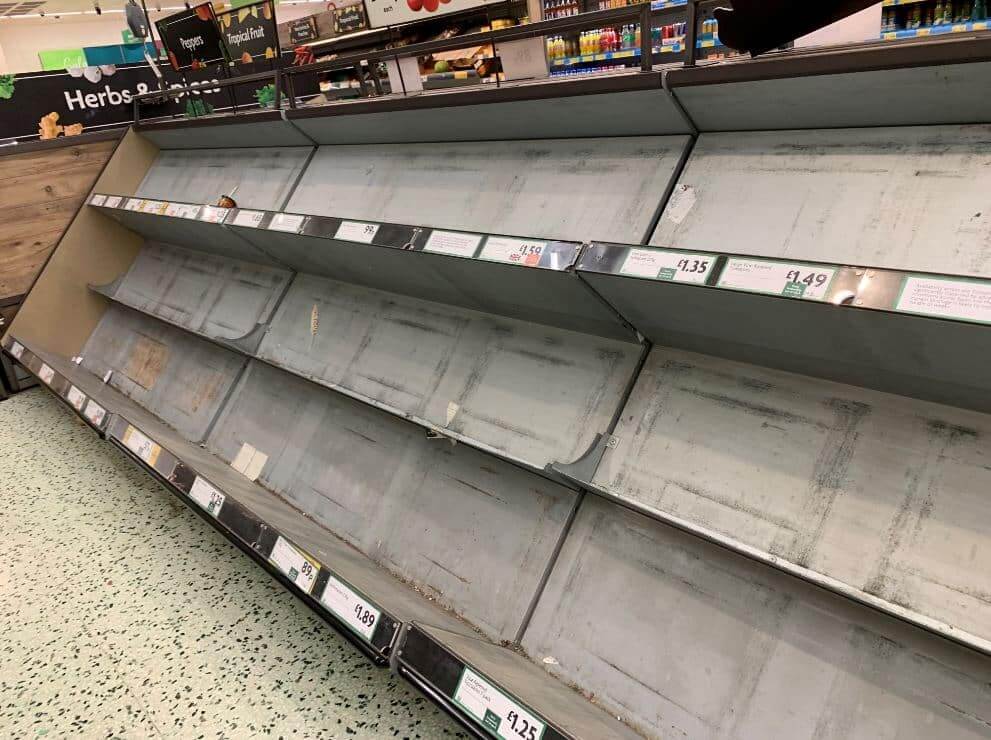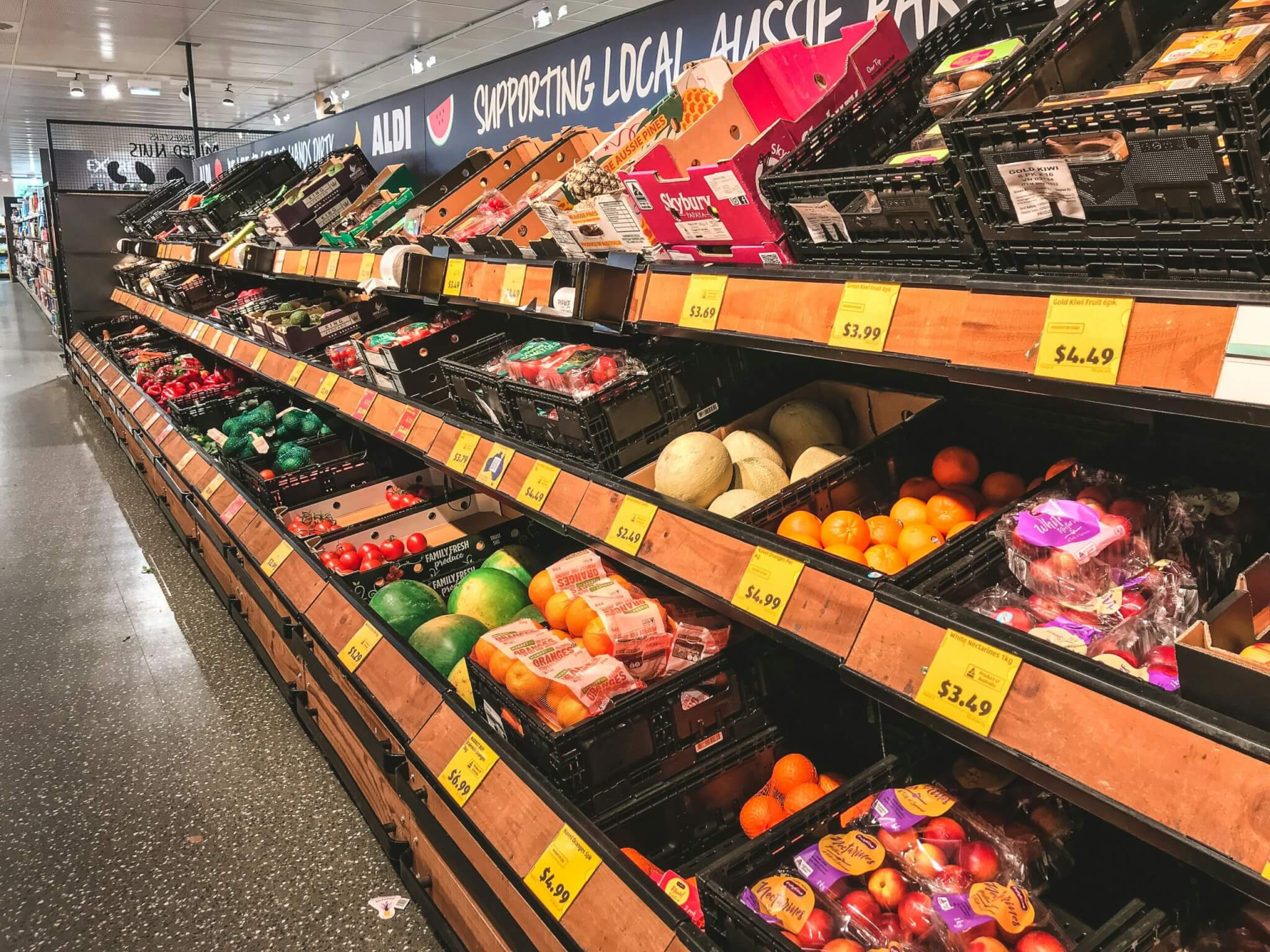Low temperatures in Spain have led to widespread shortages in UK supermarkets of tomatoes and other salad veg in what is becoming a pattern of disruptive winter weather in key southern Europe growing regions.
The shortages, described by one importer and wholesaler as the “worst in 40 years”, are a result of a perfect storm of conditions, including a heatwave and drought last summer, and then lower than average temperatures across the south of Spain and Morocco, both large suppliers of salad veg to the UK throughout winter.
Photos have been shared across social media throughout the weekend, with pictures of empty shelves from Devon to Scotland and speculation that the shortages are down to Brexit.
Supermarkets have been putting up signs explaining the shortages are down to the weather, while the BBC has reported Asda has today capped the number of tomatoes, peppers and lettuce that can be bought per shopper.
Colin Putt, an importer at Dole Produce’s wholesale branch in the South West, said it’s been a combination of “poor growing conditions and inflation”. “It’s the worst I’ve ever known for both prices and availability,” he said. The wholesale prices of peppers and tomatoes have tripled as a result of low supply, said Putt, who said other salad like cucumbers, aubergines, spinach and lettuce have been affected.
Spain is the primary supplier of salad veg to the UK outside of the homegrown growing season, with the bulk of it grown in heated glasshouses in the southern region of Almeria and supplied to major supermarket chains. Low temperatures have left produce struggling to ripen while growers face high energy costs for heating and supplementary light.
Holland is usually a substitute for poor Spanish supply, according to Putt, but growers there are facing similar inflation, as well as importers having to pay £1 per box in Brexit paperwork.
Companies buying direct from Spanish growers have so far been less affected with a more secure supply and buying lower volumes overall. Organic veg box company Riverford has lower than usual volumes from its grower partner Ecosur in Spain but remains one of the few places tomatoes are in stock this week.
The shortages are becoming a pattern in winter where weather is becoming more erratic, with less predictable temperatures, snow and hail disrupting the growing season in Spain. In recent years, there have been hailstorms that have damaged outdoor crops, and a so-called ‘courgette crisis’ where cold weather ruined Spanish crops.
Executive director of the Food Ethics Council, Dan Crossley, said: “We need to wake up and smell the tomatoes. Climate change, coupled with supply-chain challenges following Brexit, is increasingly limiting our ability to eat the same foods all year round.
“But perhaps it’s high time we challenged the assumption that this is what everybody wants. Attuning our diets to the seasons and to our local ecologies is a shift that would not only respect nature, but would also help citizens feel more connected to the food they eat.”
For more on seasonal eating, read our guide on how to eat seasonal in February.













Just wondering why you haven’t mentioned the ‘slave like’ conditions in the Almeria area in Spain? A good reason for not promoting the salad produce we demand in the winter and out of season? Hopefully this will also make people sit up and listen to reason about supply and demand when they realise who produces these out of season veggies.
We do need to be aware and proactive about climate change but it appears that European countries are not suffering the same shortages as the UK. The only real difference is Brexit ?
This article is waffle. I would expect better from a grower and importer.
We have had the problem of seasonality for decades.
Many years ago I raised at a supermarket focus group seasonality and uniformity. Shock horror. I was never invited again.
For decades supermarkets have screwed growers. We are now paying the price.
Extreme weather events will effect availability.
I noticed on Sunday, Riverford showed lack of availability for all the produce allegedly not in the supermarkets. Why was this not addressed?
We have left food sovereignty to others. Assumed UK would be able to buy anything and everything on world markets. War criminal Vladimir Putin has put paid to that.
And to make matters, an unbelievably stupid woman as Sec of State for the Environment. Who can’t even deak with sewage dumped in our waterways from water companies and farmers.
Fruit and vegetable stalls Athens Central Market no shortages.
The politrix will run on – but we can do our own bit by eating seasonally and as locally as possible….
I love salad stuff but now in winter I make coleslaws from whatever is in season and I forget about lettuce/cucs/toms – we are so lucky that we live in such a wealthy country with a (on the whole) decent climate.
Every one of us making small changes adds up to a lot.
Riverford has always had a love/hate relationship with the out of season produce that so many ‘demand’ – lets help by demanding home grown seasonal fare!!
Low temperatures cause widespread tomato shortages.
=
Low temperatures cause widespread unwillingness by supermarkets to pay farmers adequately for tomatoes.